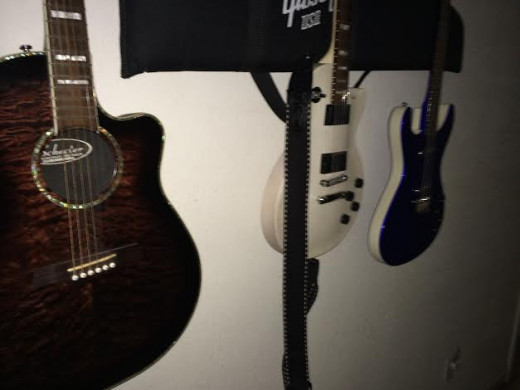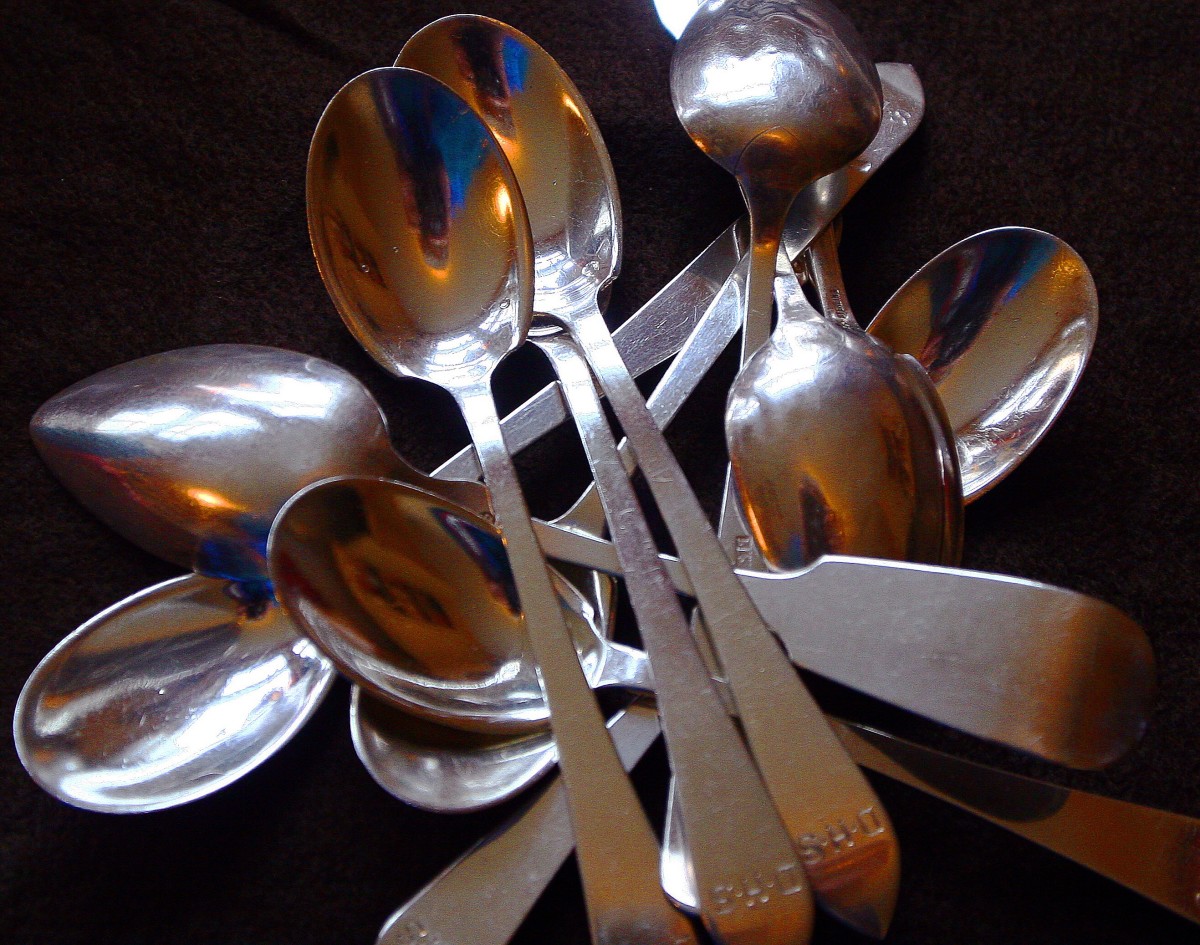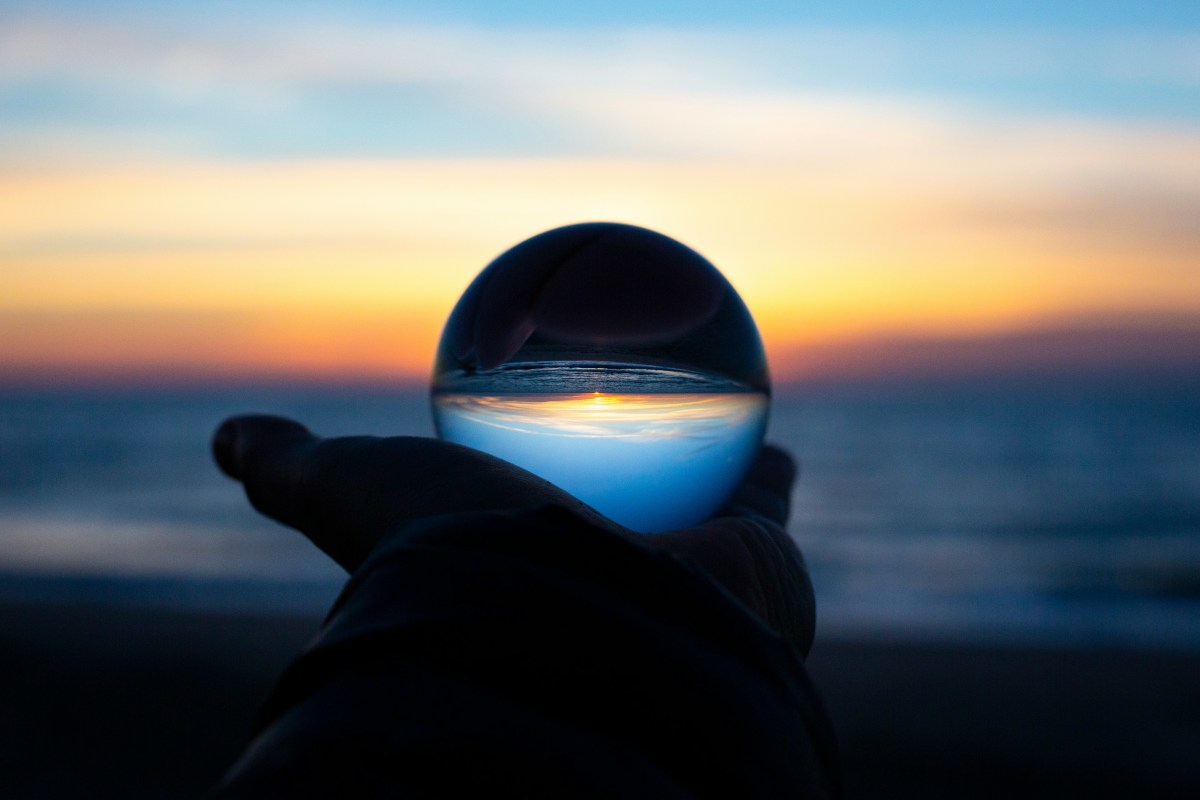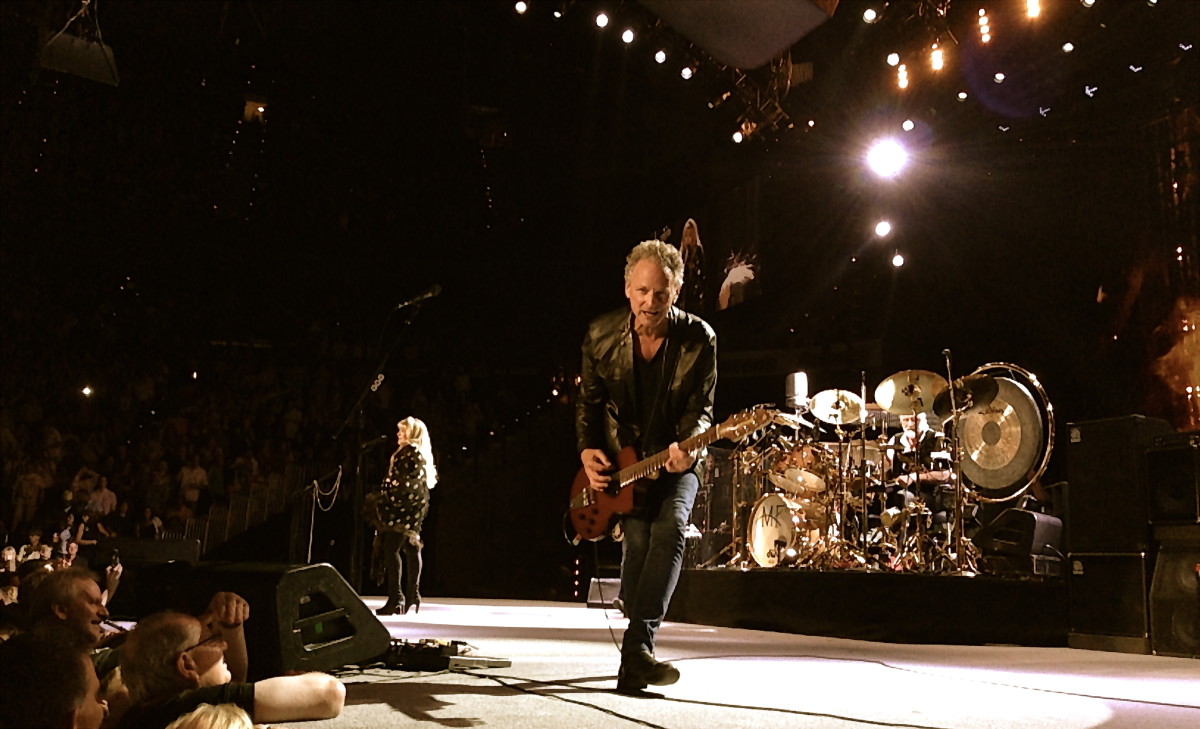8 Ways to Inspire Your Songwriting
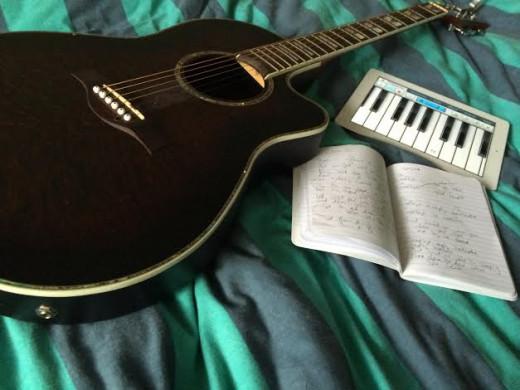
Stuck in a songwriting rut? Join the club and jump on board, friend, for you are not alone! Though it's tempting to wait for that guiding moment of cosmic intervention, you probably don't have all day, and life is far too short to simply sit back and hope that great song will magically appear before you. No matter who you are, where you are, or what you are, there has never been a better time than now (RIGHT NOW!) to write your next batch of original music, and to help you along the way, here are ten ways to get you started on your forthcoming songwriting journey!
1. Turn to your Heroes
You're bound to have a few favorite artists, and their work can be a fantastic catalyst for your own songwriting adventures--use that to your advantage. Pick a musician and go on an album binge. Allow the songs that originally inspired you to create music work their magic all over again. This method seems a little too obvious, but take this into consideration: advancements in the way we absorb music has changed dramatically in the past decade or so, and services like Pandora and Spotify have made it ridiculously easy to expand our music libraries to the point of chaos. There's nothing wrong with this--it's actually kind of fantastic--but sometimes we stray too far from the roost; "lose our roots," if you will. You should never stop musical exploration, but it's okay to come home once in a while and rediscover the music that made you love songwriting in the first place. It becomes especially useful when you're facing an emotional deficit--an album or a song you used to love is bound to have feelings and memories attached to them, and allowing those sensations to return (even if only in shadow form) is a great way to get your songwriting juices flowing.
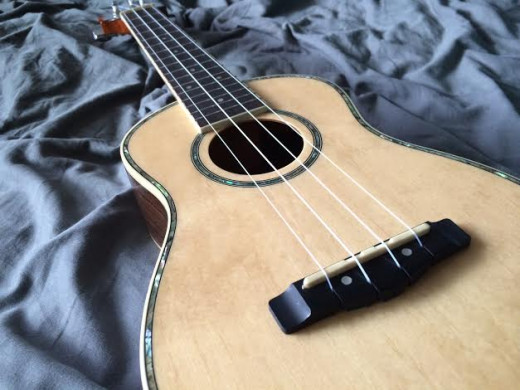
2. Learn a New Instrument
Music is a funny thing--it's an incredibly limited art form with an infinite amount of sonic variation. We only have twelve individual notes to work with, yet they all sound unique when played on different instruments, so there's an easy way to fight the technical limitations of a songwriting rut: learn a new instrument. The change can be as simple or as drastic as you'd like. You can be a guitarist trying your hand at the piano, or vice versa. If that isn't enough, go ahead and give MIDI programming a whirl. If these changes are all too much to handle, stick within a comfort zone. For example, I write primarily on guitar, but needed something a little different to pull myself out of rewriting to same thing over and over again, so I learned how to play the ukulele. It's not drastically different from the guitar, but it was enough to explore differing chord changes, and next thing you know I had a new batch of songs ready to perform.
3. Find New Surroundings
Songs tend to be a direct reflection of your immediate surroundings, which include where you live, where you work, the people you associate with, even the weather. A little change of scenery can go a long way when it comes to altering your emotions for songwriting, and it may be more than enough to help you along the way. This doesn't have to resort to permanent relocation--a short vacation or road trip will likely do the trick. If that isn't realistic, try changing how you approach your own city: find neighborhoods you've never been to, visit a coffee shop that's out of the way, go to a pub that your friends don't frequent. It's okay if these ideas compromise your comfort zone--that's kind of the point. New experiences reflect well in songwriting, and chasing your muse is far more efficient than simply waiting for it to randomly show up from time to time.
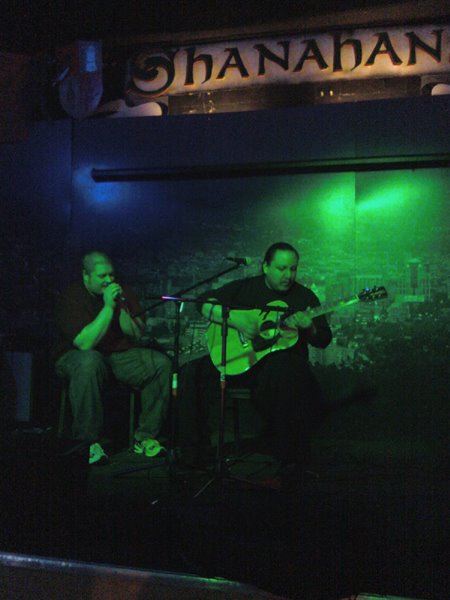
4. Experience Live Music
Listening to recorded music is a great way to discover an eclectic mix of finely-crafted songwriting, but it doesn't hold a candle to the experience of watching music come alive in a concert setting. For best results, seek out musicians who haven't hit it big time: try going to local concerts and open-mic nights. Exposing yourself to new/indie artists comes with two huge benefits: 1) You're hearing new ideas from musicians who aren't really all that different from you and 2) smaller-scale songwriters are far more accessible and easy to reach than platinum-selling corporate acts. Actively going to local concerts gives you the ability to listen to original music at its source and then actually speak with the musicians about their craft once all has been said and done. You may even learn a new trick or two, which never hurts. Don't forget to check out open mic events, of which there are always plenty. Use websites like openmikes.org to find one close to you.
5. Find a Songwriting Blog/Podcast
There has never been a shortage of starry-eyed songwriters, and many of the most dedicated ones enjoy sharing their tips and experiences. There are tons of songwriting blogs available, developed by people who love the craft so much that they simply have to write about it. Songwriting podcasts are another great way to rake in tips of the trade, many of them interview fellow songwriters on a consistent basis, and unlike subscription-based magazines, they are usually completely free. Songwriting blogs and podcasts also tend to encourage accessibility and interaction, so you can actively associate with like-minded individuals and gain inspiration from a two-way-street model. Sometimes you can even find them bundled together with blog/podcasts like Inside Songwriting run by Sydney-based singer-songwriter Karl Broadie.
6. Read Books
This is a loaded point, and there are several different ways to approach the books-as-inspiration technique. The most obvious one is also the most basic: fictional novels are usually deep, descriptive and explore a range of differing emotions. Memoirs are another great way to connect with another point of view, which is important since songwriting and empathy go hand in hand. When we read, our brains are actively working and processing the information, coloring it with our own ideas and experiences. A reaction to something you've read is wholistically unique to your own basis of humanity, which can be the spark that ignites several songwriting ideas.
Something else you may consider trying: read books about songwriting. There are quite a few available, and though many of them may cover information deemed too "basic" for non-beginners, you're bound to come across new ideas and different ways to approach your craft. Here's a couple to get you started: How to Write Songs on Guitar by Rikky Rooksby is highly regarded and an overall excellent read, and
Songwriting Without Boundaries by Berklee College of Music's Pat Pattison is an excellent collection of daily exercises to aid in songwriting proficiency.
7. Don't Listen to Music
This is probably the most difficult exercise for songwriters, since we live and breathe music, but try to avoid listening to music for a little while. It doesn't have to be an extended amount of time--a week is probably more than enough--but a musical fasting period can sometimes act as a sonic palette cleanser of sorts, and that may be just the thing to get you closer to finding "the zone." After a day or two, pick up your favorite instrument and give songwriting a try. It's not a foolproof method, but it may help you synthesize information easier and provide a much needed sense of clarity.
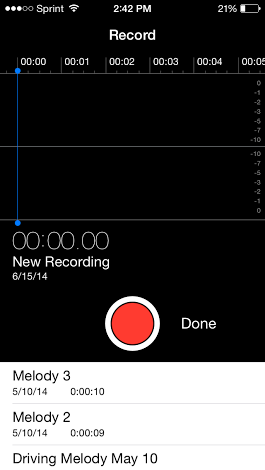
8. Keep a Journal
Your thoughts are unique to yourself, but some researchers suggest that humans average about 70,000 thoughts per day, so you're bound to lose a few here and there in the hustle of everyday life. These thoughts are valuable for your songwriting adventures, so it's a good idea to keep track of them via the magic of journaling. You may wish to carry about a small notebook with you wherever you go, but an even quicker (and slightly less creepy) method can be found by audio recording. A portable field recorder is a handy tool to have, but your smartphone will probably suffice--iPhone users should definitely give the voice memo app a try. At the end of the week, read/listen back to all the ideas you've had, and identify the ones that stick with you the most and give them the songwriting treatment. Allow your own thoughts and ideas to inspire our craft.
